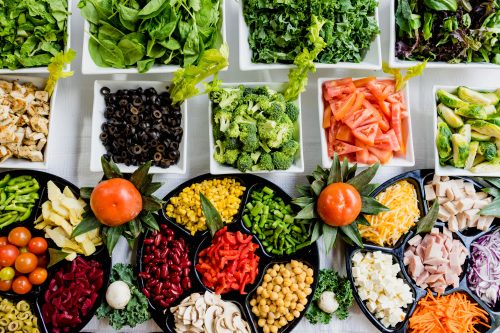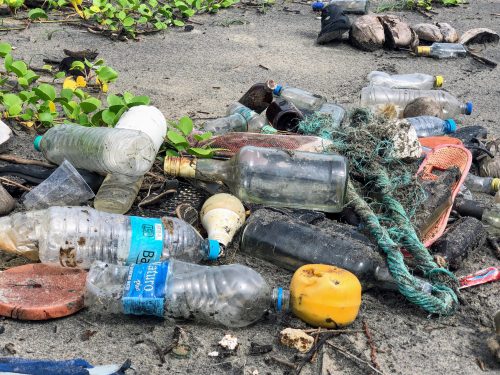by Lisa Chavarria

“Success is the sum of small efforts, repeated day in and day out.” (Robert Collier). The new year presents an opportunity to commit to new habits and break old ones. Thinking about how to battle climate change can feel overwhelming but there are small changes you can make in your everyday life that help the planet more than you might think. Below is a list to consider as we go into this new year.

Around the Yard. Before you break out the Round-Up and non-organic fertilizers this spring think about the impact of these petroleum based and synthetic chemicals. These chemicals end up in our waterways and contribute to algae blooms. Consider using only organic fertilizers and pulling weeds by hand or using a mixture of horticulture grade vinegar, orange oil and dish soap. I have used this combination to kill off the devil a/k/a nut grass in my yard – it did take several applications, but I finally succeeded. Know the impact of gas-powered lawn equipment – a recent study shows this equipment generates approximately 6.3 million tons of toxic and carcinogenic emissions and more than 20 million tons of carbon dioxide. Think about replacing your gas-powered equipment or engaging a lawn service that uses electric powered equipment. And if all else fails – rakes and brooms still work great and are much quieter. Here is a link to the study.

Around the House. If every U.S. family took the simple step of replacing one incandescent light bulb with a LED bulb it would eliminate 90 billion pounds of greenhouse gases. Austin Energy also gives us an opportunity to go bigger by providing rebates for implementing various energy and water saving measures around the house. Check out the Austin Energy website for rebate opportunities and think about implementing one or two items this year.

Food. Replacing red meat and dairy for plant-based meals one day a week for one year would reduce the average household’s emissions by an amount equal to that of driving 1,160 miles less per year. If one day without meat or cheese is too much, spread it out and have a few meat and cheese free meals per week. Food waste is also a major contributor to greenhouse gas emissions, but composting can significantly reduce this impact. If you aren’t already – use that green composting bin the city has conveniently provided you – there’s no excuse not to! To learn more about how your diet impacts climate change click on this link to take a quiz.

Plastic Waste. Only 9% of plastic waste gets recycled so before your grab that disposable plastic item don’t take comfort in your belief that it will be recycled because chances are that plastic bottle, bag, lid and utensil will end up in the landfill despite your intentions. Instead make a conscious effort to forego the plastic altogether buying items in glass or metal when you can. We’ve switched from liquid soap in disposable plastic bottles to using bars of soap to avoid plastic altogether. Here is an article that provides 15 ways you can avoid plastic

Clothing. Polyester is made from fossil fuels that emit greenhouse gases and also shed microfibers that add plastic pollution in the ocean. When buying clothes this year, think about buying natural fibers or used clothing.






 Seven of our eleven 2023 Scholarship recipients being recognized at our June WPNA meeting.
Please support our scholarship effort by contributing below through our secure PayPal site.
Seven of our eleven 2023 Scholarship recipients being recognized at our June WPNA meeting.
Please support our scholarship effort by contributing below through our secure PayPal site.



